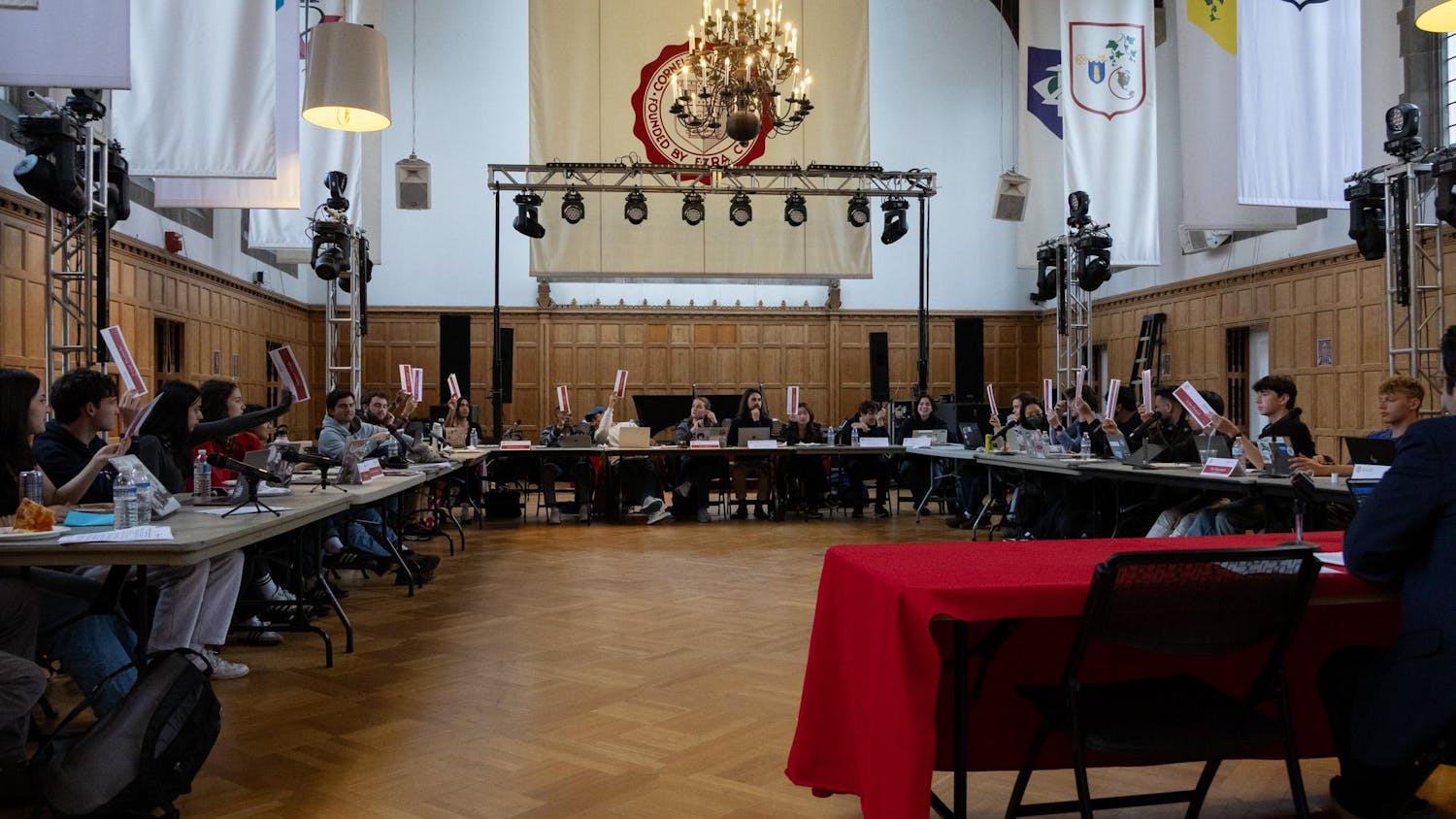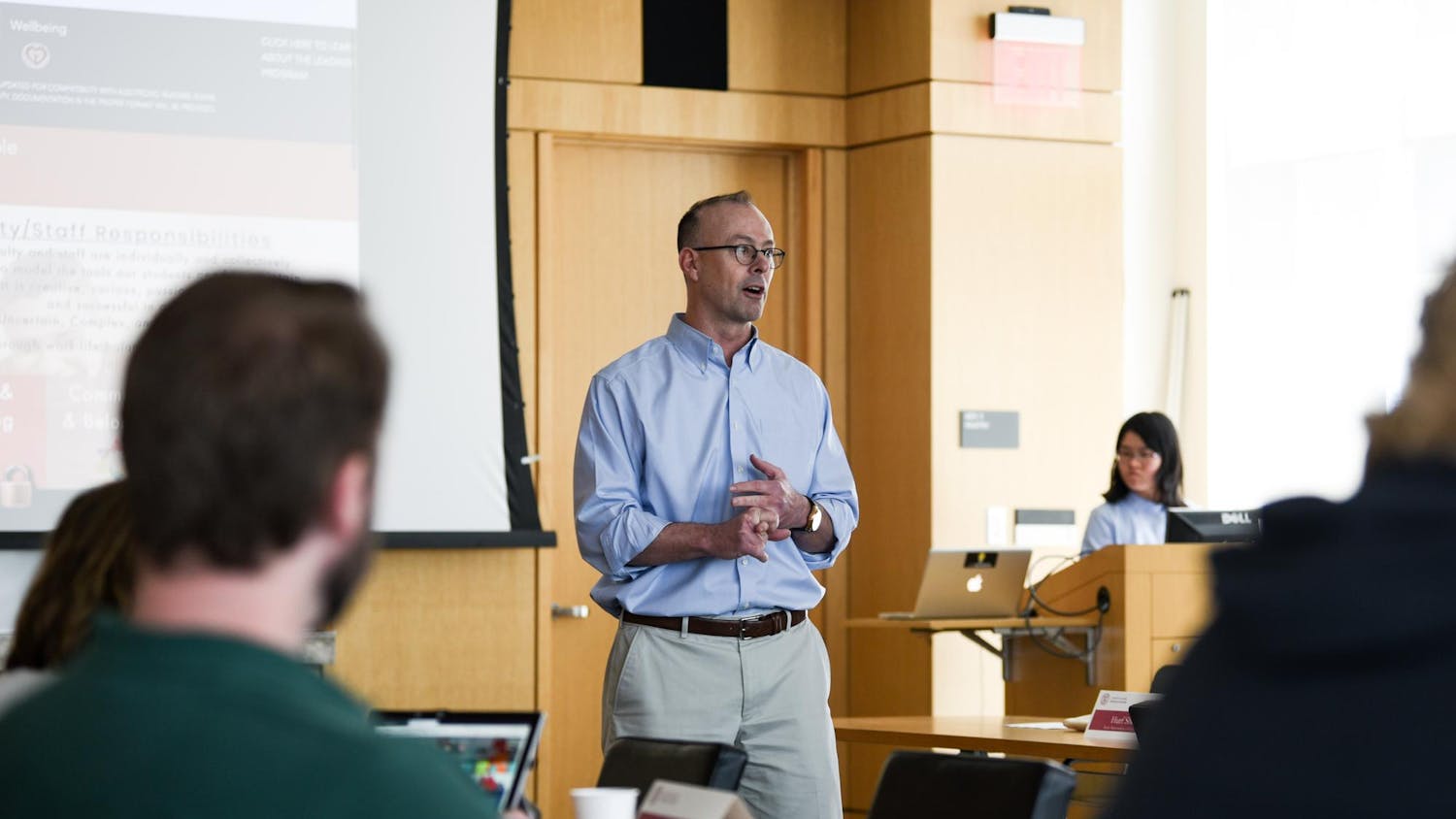Labrador retrievers with wagging tails and bright blue “Future Guide Dog” vests roam campus as Guiding Eyes for the Blind at Cornell raises and trains guide dogs for the visually impaired.
Guiding Eyes for the Blind at Cornell is a part of the larger Guiding Eyes for the Blind organization — a nonprofit dedicated to raising and training guide dogs for individuals with vision loss, free of charge.
“It's very hard to move through the world when you're visually impaired,” said Rosie Hsu ’25, president of Cornell’s Guiding Eyes chapter. “So giving [visually impaired people] another set of eyes and giving them that freedom — … it’s something to focus on that's also doing good.”
From students majoring in animal science to mechanical engineering, anyone is welcome to join Guiding Eyes by attending general body meetings hosted four times a semester.
General members can apply to be a dog sitter who takes care of dogs during the day, taking shifts with other sitters. The next level, raisers, are responsible for taking the dogs home at the end of the day, feeding them and taking care of their health. Sitters and raisers need “patience” and determination” to carry out their jobs, Hsu said.
In addition to training and caring for guide dogs for the visually impaired, the club provides moments of joy and comfort for the Cornell community. Guiding Eyes frequently hosts pet-a-puppy events, social events where students can come and meet the dogs.
“I have three dogs at home, [and] they’re all labs. So I feel like being here kind of brings me back to home,” Ava Farkash ’27, a prospective sitter said about the pet a puppy events.
The organization’s events also expose the community to the importance of guide dog training, according to Rhiyan Gray ’26, vice president for the Guiding Eyes.
“[It’s] nice to advocate for another community, share that story and hopefully also get more people that want to make an impact in that field involved,” Gray said.
Reflecting on the training process, Hsu said that she enjoys seeing the impact that the guide dogs make outside of the organization. Offering visually impaired people “freedom” and “flexibility” is great, Hsu said.
“It's so great as a raiser to see [that] the dog that I raise is now hopefully going to act as a guide dog for someone that I've never met,” Hsu said, “but hopefully make a huge impact on their life and help them gain more freedom and flexibility.”
Gray emphasized the importance of the work they do to train the guide dogs while also spreading awareness to the Cornell community.
“I would like to think that all of our pet-a-puppy events … on campus have made people more aware [that] they're not just puppies running around, they actually have this greater purpose,” Gray said.

Mary Caitlin Cronin is a member of the Class of 2028 in the College of Agriculture and Life Sciences. She is a staff writer for the News department and can be reached at mcronin@cornellsun.com.











